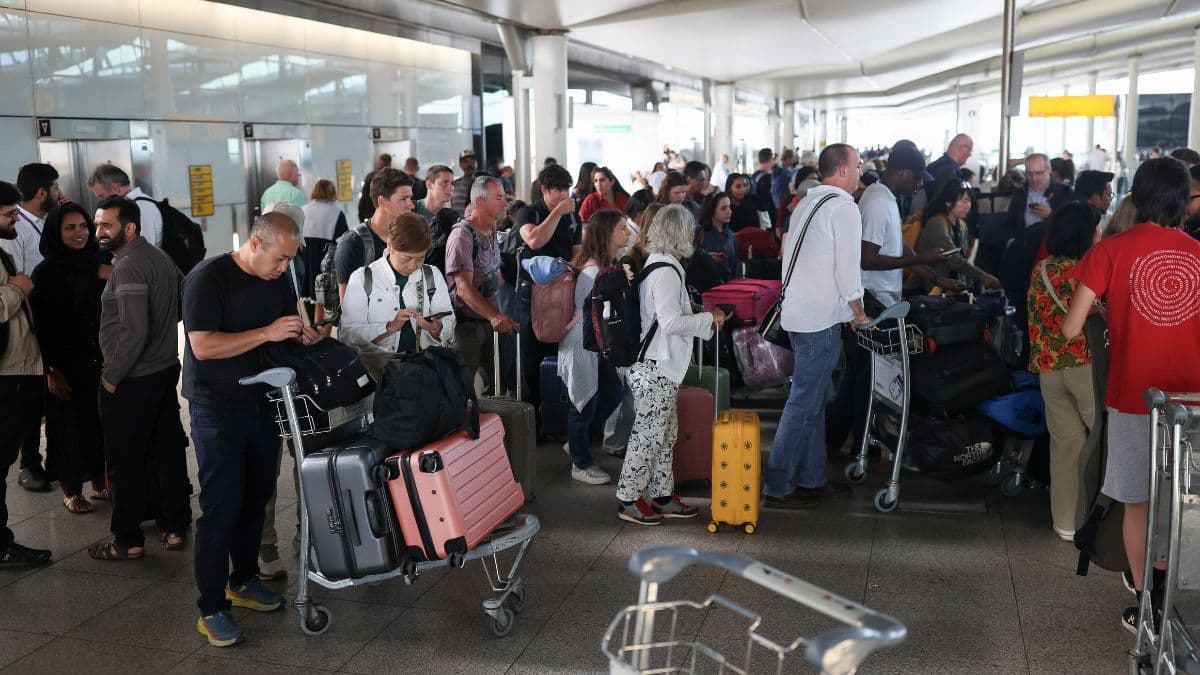Having endured seven years of self-exile inside a foreign embassy and five years in prison, WikiLeaks founder Julian Assange’s lengthy legal battle in the UK to avoid facing spying charges in the US might be coming to an end as he could be appearing in his final court hearing in London next week.
Assange is trying to stop his extradition to the US, where he is staring at 175 years in jail if found guilty of espionage.
The High Court would be hearing arguments across two days on whether Assange can move an appeals court to thwart his extradition. The catch is, if he fails to convince the court to allow his appeal, he would be sent to the US.
His wife was quoted as saying that Assange’s health is failing, and that the decision was a life and death question.
“His life is at risk every single day he stays in prison,” Stella Assange said. “If he’s extradited, he will die.”
Charges Against Assange
Australian computer expert, Assange, now 52, has been accused in the US on 18 charges over alleged publication of hundreds of thousands of classified documents in 2010.
Prosecutors claim Assange joined hands with US army intelligence analyst Chelsea Manning to hack into a Pentagon computer, releasing secret diplomatic cables and military files on the wars in Iraq and Afghanistan.
Impact Shorts
More ShortsHe faces 17 counts of espionage and one charge of computer misuse.
Dubbed as the doyen of free speech and fearless journalism, Assange’s supporters celebrate him for exposing wrongdoing by the US military.
Among the files published by WikiLeaks was video of a 2007 Apache helicopter attack by American forces in Baghdad that killed 11 people, including two Reuters journalists.
“Julian has been indicted for receiving, possessing and communicating information to the public of evidence of war crimes committed by the U.S. government,” Stella Assange said.
“Reporting a crime is never a crime.”
Long Legal Road
While the U.S. criminal case against Assange was only unsealed in 2019, his freedom has been restricted for more than a dozen years.
Assange took refuge in the Ecuadorian Embassy in London in 2012 and was granted political asylum after courts in England ruled he should be extradited to Sweden as part of a rape investigation in the Scandinavian country.
He was arrested by British police after Ecuador’s government withdrew his asylum status in 2019 and then jailed for skipping bail when he first took shelter inside the embassy.
Although Sweden dropped its sex crimes investigation, Assange has remained in London’s high-security Belmarsh Prison while the extradition battle with the U.S. continues.
A judge in London initially blocked Assange’s transfer to the US on the grounds he was likely to kill himself if held in harsh American prison conditions.
But subsequent courts cleared the way for the move after US authorities provided assurances he wouldn’t experience the severe treatment that his lawyers said would put his physical and mental health at risk.
Stella Assange and her husband’s supporters have criticized those assurances as being meaningless because they are conditional.
What if…?
If the London court rejects Assange’s plea for a full appeal, he could be extradited to the U.S. once British officials approve his removal.
His legal team plans to appeal an adverse ruling to the European Court of Human Rights, but they fear he could possibly be transferred before the court in Strasbourg, France, could halt his removal.
If he prevails at next week’s hearing, it would set the stage for an appeal process that is likely to further drag out the case.
“This procedure has been marked by prolonged and creeping time frames,” Wikileaks Editor-in-Chief Kristinn Hrafnsson said. “We call it punishment through process. It is obviously a deliberate attempt to wear him down to punish him by taking this long.”


)

)
)
)
)
)
)
)
)



